
NC Aquaculture Development Conference
The 2026 North Carolina Aquaculture Development Conference is being held March 25-27. Please see the flyer below to link …



Extension and research at NC State address timely issues impacting our state. Extension delivers trusted information directly into the hands of farmers and agribusinesses, helping them translate knowledge into solutions that grow our economy and communities.
El inglés es el idioma de control de esta página. En la medida en que haya algún conflicto entre la traducción al inglés y la traducción, el inglés prevalece.
Al hacer clic en el enlace de traducción se activa un servicio de traducción gratuito para convertir la página al español. Al igual que con cualquier traducción por Internet, la conversión no es sensible al contexto y puede que no traduzca el texto en su significado original. NC State Extension no garantiza la exactitud del texto traducido. Por favor, tenga en cuenta que algunas aplicaciones y/o servicios pueden no funcionar como se espera cuando se traducen.
Inglês é o idioma de controle desta página. Na medida que haja algum conflito entre o texto original em Inglês e a tradução, o Inglês prevalece.
Ao clicar no link de tradução, um serviço gratuito de tradução será ativado para converter a página para o Português. Como em qualquer tradução pela internet, a conversão não é sensivel ao contexto e pode não ocorrer a tradução para o significado orginal. O serviço de Extensão da Carolina do Norte (NC State Extension) não garante a exatidão do texto traduzido. Por favor, observe que algumas funções ou serviços podem não funcionar como esperado após a tradução.
English is the controlling language of this page. To the extent there is any conflict between the English text and the translation, English controls.
Clicking on the translation link activates a free translation service to convert the page to Spanish. As with any Internet translation, the conversion is not context-sensitive and may not translate the text to its original meaning. NC State Extension does not guarantee the accuracy of the translated text. Please note that some applications and/or services may not function as expected when translated.
Collapse ▲
The 2026 North Carolina Aquaculture Development Conference is being held March 25-27. Please see the flyer below to link …
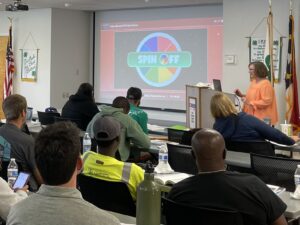
The spring 2026 Pesticide Safety Schools are for those seeking initial licensing in one or more pesticide subcategories. To register for …
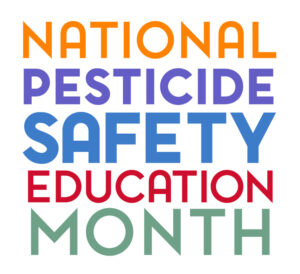
February 2026 is the Ninth Annual National Pesticide Safety Education Month! How knowledgeable are you about basic pesticide safety principles? Take our …

The Pittsboro Farmers’ Market Board is excited to announce that they are moving: The market has accepted a great opportunity to …

The 2026 cycle of the Catalyzing Agroforestry Grant Program (CAGP) is open for applications! The 2026 Catalyzing Agroforestry Grant Program …

Join us online February 10th to hear the latest research updates on watermelon disease management and variety performance, to …

The Southeastern Vegetable Extension Workers Group has just released the 27th edition of the Southeastern U.S. Vegetable Crop Handbook. …

Join us for three regional Farm to School workshops hosting by your Extension Farm to School working group through the Local …

Research Opportunity for High School Students! Are your students interested in research and looking to collaborate with researchers in the …

Two Locations | Two Dates 5:30 p.m. – 8:00 p.m. Please join us for one of two Regional Sweetpotato Production Meetings. Pesticide …

Note: this workshop was originally scheduled for January 28 but was rescheduled due to the winter storm. A Guide to …

Across the hills of Transylvania County, the urban gardens of Wake and Durham, and the coastal fields of Currituck, …

1/2/26- The USDA’s Natural Resources Conservation Service (NRCS) has announced important updates. Here’s what you need to know: Extended Batching …

New technologies are transforming the livestock industry, giving land and livestock managers powerful tools to improve efficiency, animal health, …

Spring Ag Fest Celebrating Chatham County Agriculture, Forestry, and Natural Resources Saturday, March 28, 2026 10 a.m.–3 p.m. This is a FREE Event! Chatham …

The Yellow-legged Hornet (YLH) is a predatory wasp that attacks honey bee colonies. It was found in Savannah GA in …
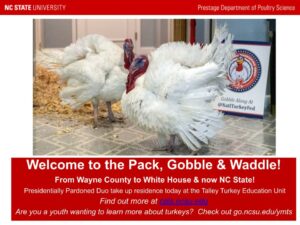
NC State University’s College of Agriculture and Life Sciences (CALS) has once again been selected as the home to the official National …

The PDIC will be closed during the following dates for the late 2025 – early 2026 holidays: Thanksgiving break: The …
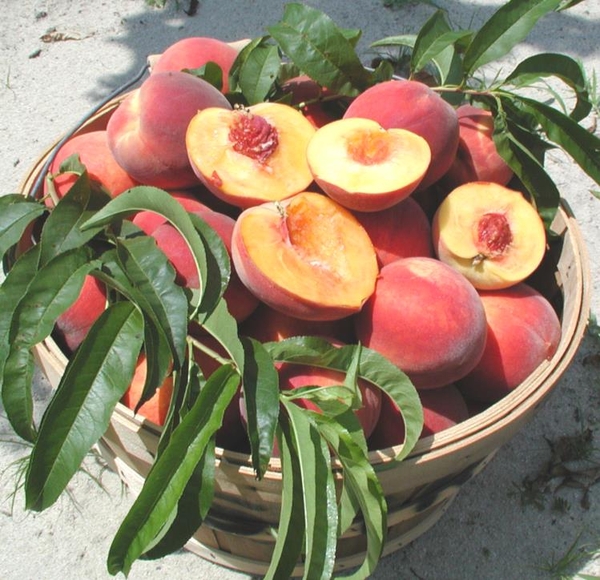
This publication is intended to help you manage diseases and pests of peaches. In choosing …
This guide provides home gardeners with instructions for growing strawberries, blueberries, brambles (blackberries and raspberries), …

An introduction to soil acidity and liming for farmers and gardeners to increase crop income …
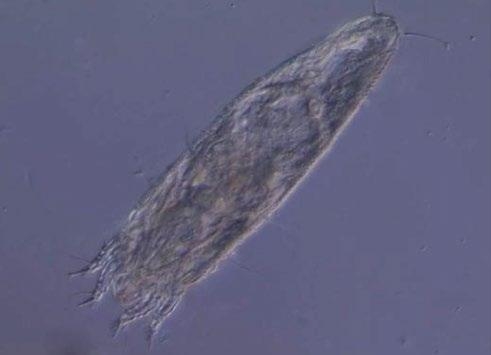
Blueberry bud mites (Acalitus vaccinii) are tiny, microscopic mites in the family Eriophyidae that can …

Participation in conservation practices and restrictions comes in various forms, from revocable-at-will, revocable with penalty, …

Sales Taxes are reportable on the sale of many goods and services. Such taxes also …
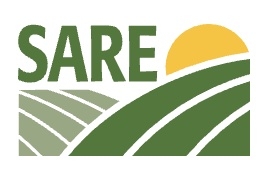
Though impossible to measure the incidence of neighbor complaints against farmers, North Carolina public policy …